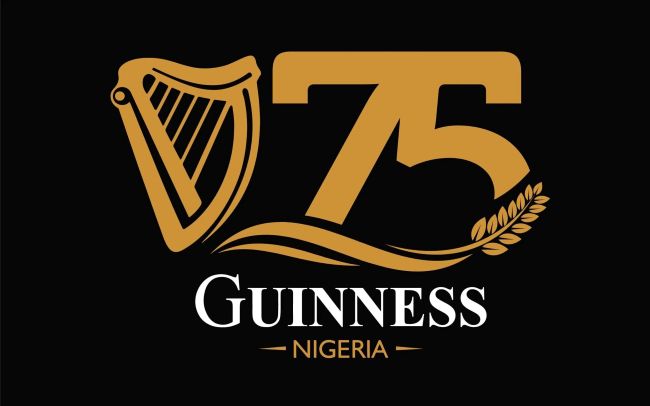Guinness Nigeria at 75: New Shareholding, Same Spirit — A Bolder Future Beckons

As Guinness Nigeria Plc marks its 75th anniversary, the iconic brewer isn’t just raising a toast to the past — it’s signalling a transformative leap into the future.
With a recent change in majority shareholding — as global drinks giant Diageo ceded control to Singapore-based Tolaram Group — Guinness Nigeria says it is now primed for greater local agility, innovation, and impact, marking a strategic shift from legacy stewardship to future-focused enterprise.
“We are building for more — more connection, more purpose, more impact,” said Managing Director Girish Sharma, in a statement from the company’s Lagos headquarters on Tuesday.
Legacy Brewed in Nigeria, Refined Over Generations
Founded in 1950, Guinness Nigeria opened its pioneering brewery in Lagos in 1962, becoming the first Guinness operation outside the British Isles. Over seven decades later, it remains one of Nigeria’s most recognisable heritage brands — woven into the cultural and commercial fabric of the nation.
“This milestone is not just a celebration of how far we’ve come,” Sharma noted. “It’s a tribute to the people who have built this legacy with us — from distributors and farmers to consumers and employees.”
That legacy includes Nigeria’s favourite dark stout, a range of premium beverages, and a pioneering local sourcing strategy that began as early as the 1980s — long before ‘backward integration’ became an industry standard.
Strategic Shift: Local Control Meets Global Standards
With Tolaram Group now holding the majority stake following Diageo’s divestment, Guinness Nigeria is entering what Sharma described as “a new chapter” — one that promises:
- Greater local responsiveness
- Deeper supply chain investments
- Accelerated product and packaging innovation
- A reinforced Nigerian identity, backed by global benchmarks
Analysts say the move is in line with a broader trend among multinational brands recalibrating African operations amid foreign exchange volatility and shifting geopolitical risk appetites.
For Guinness Nigeria, the pivot offers a chance to re-anchor its leadership in the fast-evolving consumer goods sector, where nimbleness, localisation, and ESG commitments are becoming critical differentiators.
Business with Purpose: Legacy of Impact
While Guinness Nigeria is known for its brands, it has also carved a niche as one of the most socially responsible companies on the Nigerian Stock Exchange (NGX). The company’s Guinness Eye Centres in Lagos and Onitsha have sponsored free eye surgeries, while its Water of Life initiative has delivered clean water to over 500,000 Nigerians.
Other signature programmes include:
- Plan-W: Entrepreneurship and financial literacy training for over 1,000 women.
- Undergraduate Scholarships: Supporting academic excellence across Nigeria.
- FRSC Partnership: A 20-year collaboration to promote road safety and responsible drinking.
- Sorghum Sourcing: Supporting thousands of local farmers and reducing dependency on imported raw materials.
“Guinness Nigeria has consistently championed purposeful progress — investing in people, communities, and the future,” Sharma affirmed.
Celebrating the Past, Engineering the Future
To commemorate its 75th anniversary, Guinness Nigeria has rolled out a suite of high-impact activities including:
- A 75th-anniversary documentary
- Limited-edition bottles honouring the company’s heritage
- A nationwide consumer promotion
- Staff celebrations, including interdepartmental football tournaments and regional parties across Lagos, Benin, and field offices
But beyond the fanfare, the company is eyeing its next evolution with quiet confidence.
“We are not just celebrating a legacy; we are preparing for the future,” Sharma said. “This is a company built on trust, quality, and purpose. And we’re just getting started.”
BRANDECONOMY Insight: A New Chapter for a National Icon
Guinness Nigeria’s blend of tradition and transformation offers a powerful case study in resilience, strategic reinvention, and stakeholder capitalism.
As the Nigerian FMCG landscape becomes more competitive and consumers demand both quality and meaning, the company’s renewed focus on “connection, purpose, and impact” could prove not just timely — but profitable.
In an economy often constrained by policy shifts, inflation, and currency woes, Guinness Nigeria’s pivot toward local autonomy may be one of the more insightful plays of the decade.
Bottom Line: Guinness Nigeria at 75 is not just celebrating heritage — it is distilling it into a bolder, more Nigerian future.












